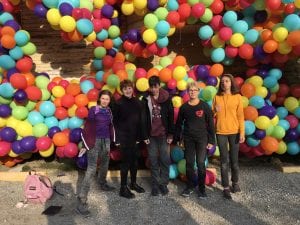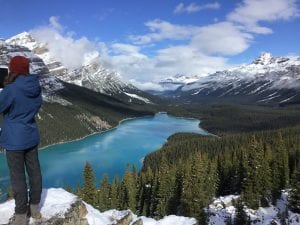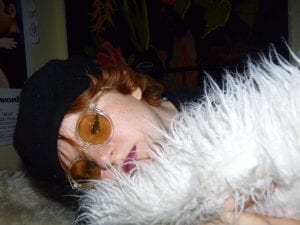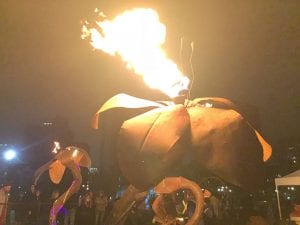Hi Everyone! Welcome (back) to my blog! Another blog post, another Humanities unit finished… and right before spring break! This year seems to be flying by! I can’t wait to share with you our most recent project and unit, which has been challenging, but also amazingly fun. Without further ado…. let’s get into it!
Launch
Our driving question for this unit was…
“How did lives and conditions change and stay the same for Canadians after WWII?”
Throughout this unit, we were studying the history of minorities in Canada, specifically following WW2. We also read a book, did some BookChats, and for our final project, created podcasts. Our podcasts were made in groups of two, and each one focuses on a different minority in Canada. You can listen to Lucy and I’s podcast, but I encourage you to keep reading to find out more about our process and the other mini projects we completed this unit.

Building Knowledge
Podcasts Galore!
To kick off our unit, we began by listening to some different podcasts and writing a little review on them! Since we were going to have to create our own, we needed to understand what makes a podcast intriguing, and how not only the content of the podcast is important, but the quality, editing and sound makes up a huge part of a good podcast.
I listened to this podcast here, about a Greek myth. You can read my response right below!
I really loved this short podcast and I learned that it is important to have multiple musical interludes in your podcast to separate the information, and to be friendly but informative when you’re talking about an information-heavy topic.
The Absolutely True Diary of a Part-Time Indian
As you may know, many of our projects are accompanied with a novel study to broaden our knowledge in a certain topic. For this unit focusing on minorities in Canada, we read The Absolutely True Diary of a Part-Time Indian by Sherman Alexie.
The Absolutely True Diary follows Junior, a young boy living on a Rez in America. He is full of life and a wonderful talent for drawing cartoons. However, his life is far from perfect— he is struggling with issues of identity and race, abuse, and growing up separated from the rest of the world. He decided to make a leap of faith and transfer to a school outside of the Rez— which takes him on a journey of self-discovery and educates the reader of the divide between Western and First Nation culture.
Personally, I very much enjoyed this book. It manages to deal with very heavy subject matter, like alcoholism, abuse, poverty, racism— and still be a relatively light read. Junior is a relatable and likeable character, and I loved reading from his POV and following his experiences. I also found this book very educational and can say that I have learned a lot about life on the Rez. It is a great mixture of storytelling and teaching.
Every week, we met as a class to discuss our ideas and questions. This was probably one of my favourite parts of the unit— I love talking and debating about books, films, any topics, so this was perfect for me. I gained a lot of insight from my peers and their opinions, and analyzing a book orally is something I haven’t really done before, but I thoroughly enjoyed.
You can read my discussion on the book’s subject matter and why I think it was informative about First Nations culture and tradition in my Literary Reflection.
Develop and Critique
Diving into our Podcasts
Choosing a Topic
Of course, the big part of this unit was creating our own podcasts. But before we could start that, we had to actually choose a topic and a group!
I got paired with Lucy, and for our topic, we decided on Judaism and Jewish Traditions in Canada. Our driving question is:
How has Jewish culture and tradition been impacted by and evolved since WW2?
I think this topic is especially pertinent when talking about WW2, but hardly ever discussed in the following years— we never really learn about Judaism in Canada in the 70s, 80s, or even now. So we decided to choose it, to learn more.
Writing a Script
Once we had decided on our topic, we could get started on a script. We began to record some general information about Judaism in Canada, where it began and what happened after WW2. We also began to think about how our podcast would be formatted, introductions, music… a lot of the logistics of making a podcast.
Conducting an Interview

Once we had drafted up a script, our next step was to find and interviewee and schedule an interview. We got in contact with Emily, a Jewish member of our community, and conducted a short interview via phone with her. She was wonderful to talk to and provided some very useful information— so thank you, Emily! We talked a lot about discrimination, how she thinks Jewish traditions have evolved since WW2, and about her family history.
Editing and Sound
Finally, after recording our interview, we could begin editing. Lucy and I recorded our script, and used the app GarageBand to edit and create our music. We decided to use a musical interlude at the beginning of the podcast, and throughout it as well. Editing and music was a lengthy process, but worth it for polishing everything.
Present and Reflect
Finally we uploaded our finished product! You can check it out right here
What I did well:
- I am proud of our interview, and our script
- Lots of information
- Interesting music and sound
- Speaking clearly
What I would change:
- the quality of our sound could be improved
- Could have recorded our voiceover in a quieter place, or with better mic
- Maybe conduct the interview in person if possible for better sound quality
Overall, I give this unit a solid 10/10! It was educational, fun, and challenging. My favourite part was definitely the book-chats and reading the novel! I highly recommend it. I would love to make more podcasts in the future and read more books like The Absolutely True Diary.
Thanks for visiting! Come back soon if you wanna see more of my work in Humanities 10!








Leave a Reply